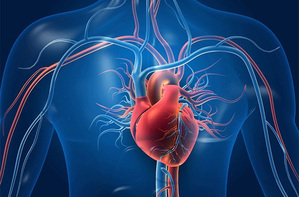Seoul, Feb 7(IANS) Women have a four times higher risk of dying from cardiovascular disease if they have an infection with a high-risk strain of the human papillomavirus (HPV), according to research released on Wednesday.
HPV is a very common infection and high-risk strains are known to cause cervical cancer. Previous research has suggested that HPV may also contribute to the build-up of dangerous plaque in the arteries.
However, this is the first study to show a link between high-risk HPV infection and deaths from cardiovascular disease.
The study, published in the European Heart Journal, found that women with high-risk HPV had a 3.91 times greater risk of blocked arteries, a 3.74 times greater risk of dying from heart disease, and a 5.86 times greater risk of dying from a stroke, compared to women who did not have a high-risk HPV infection.
“Despite remarkable advances in controlling well-known risk factors for heart disease — smoking, high cholesterol, hypertension, and diabetes — it continues to be a major cause of death. Interestingly, these conventional risk factors don’t explain all heart disease cases; about 20 per cent occur in people who don’t have these issues. This highlights the need to investigate other changeable risk factors,” said Professor Seungho Ryu from the Sungkyunkwan University School of Medicine in South Korea.
The team included 163,250 young or middle-aged Korean women who had no cardiovascular disease at the start of the study. They were given a variety of health screening tests, including cervical screening for 13 high-risk strains of HPV.
The women returned for health checks every year or two for an average of eight and half years. Researchers also found that the risk was higher still in women who had a high-risk HPV infection and obesity.
“We know that inflammation plays a pivotal role in the development and progression of cardiovascular disease and viral infections are potential triggers of inflammation,” said Prof Hae Suk Cheong from the varsity.
“HPV is known for its link to cervical cancer, but research is starting to show that this virus can also be found in the blood stream. It could be that the virus is creating inflammation in the blood vessels, contributing to blocked and damaged arteries and increasing the risk of cardiovascular disease,” Cheong added.
The researchers said more work is needed to find out whether high-risk HPV infection has similar effects on men and to see if the HPV vaccine can prevent deaths from heart disease.
“If these findings are confirmed, they could have substantial implications for public health strategies. Increasing HPV vaccination rates may be an important strategy in reducing long-term cardiovascular risks,” Prof Ryu said.
–IANS
rvt/vd


Comments are closed.